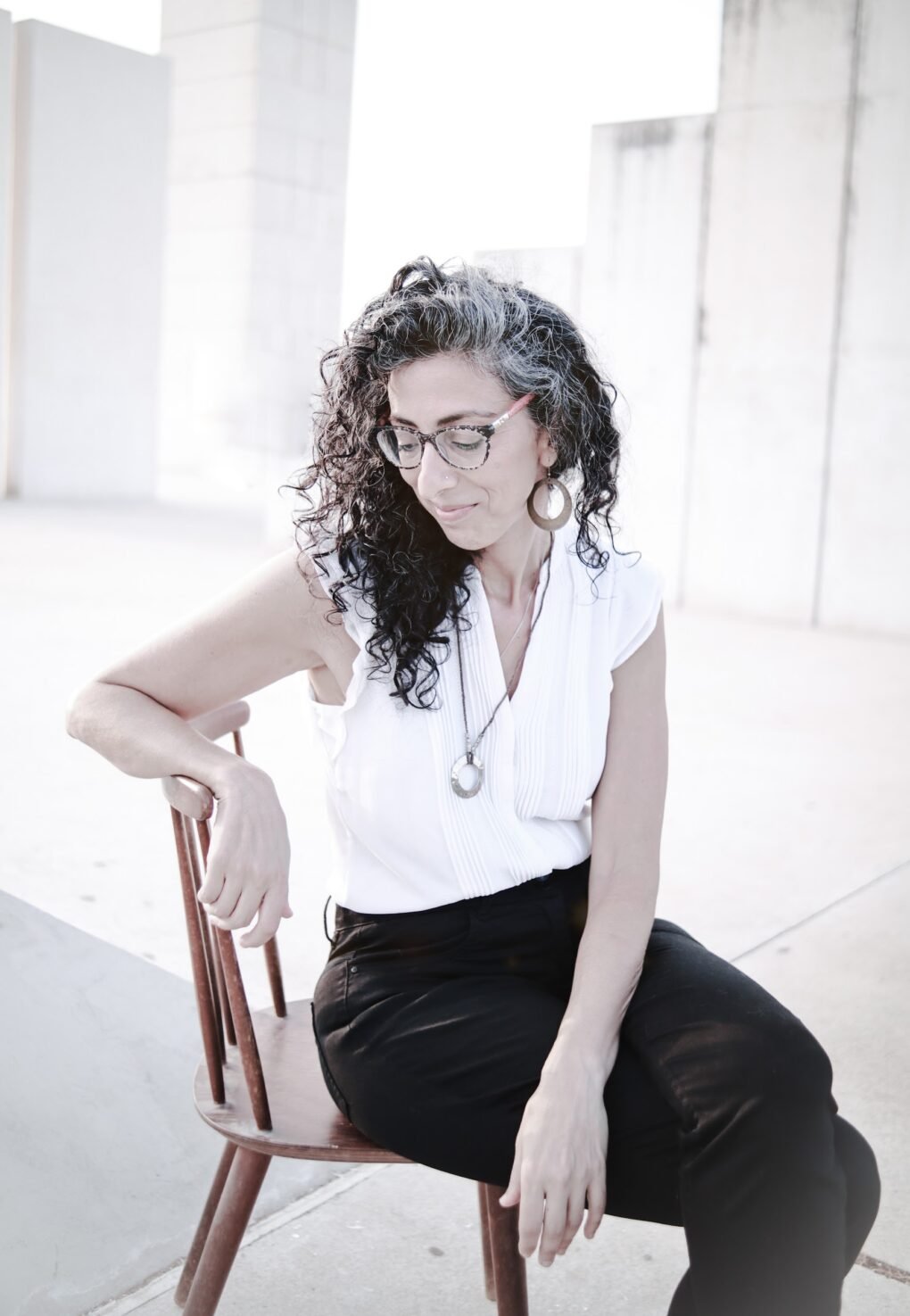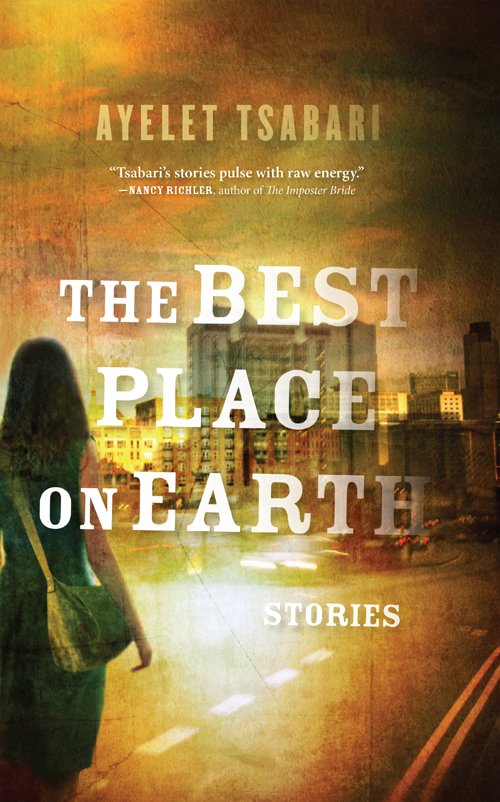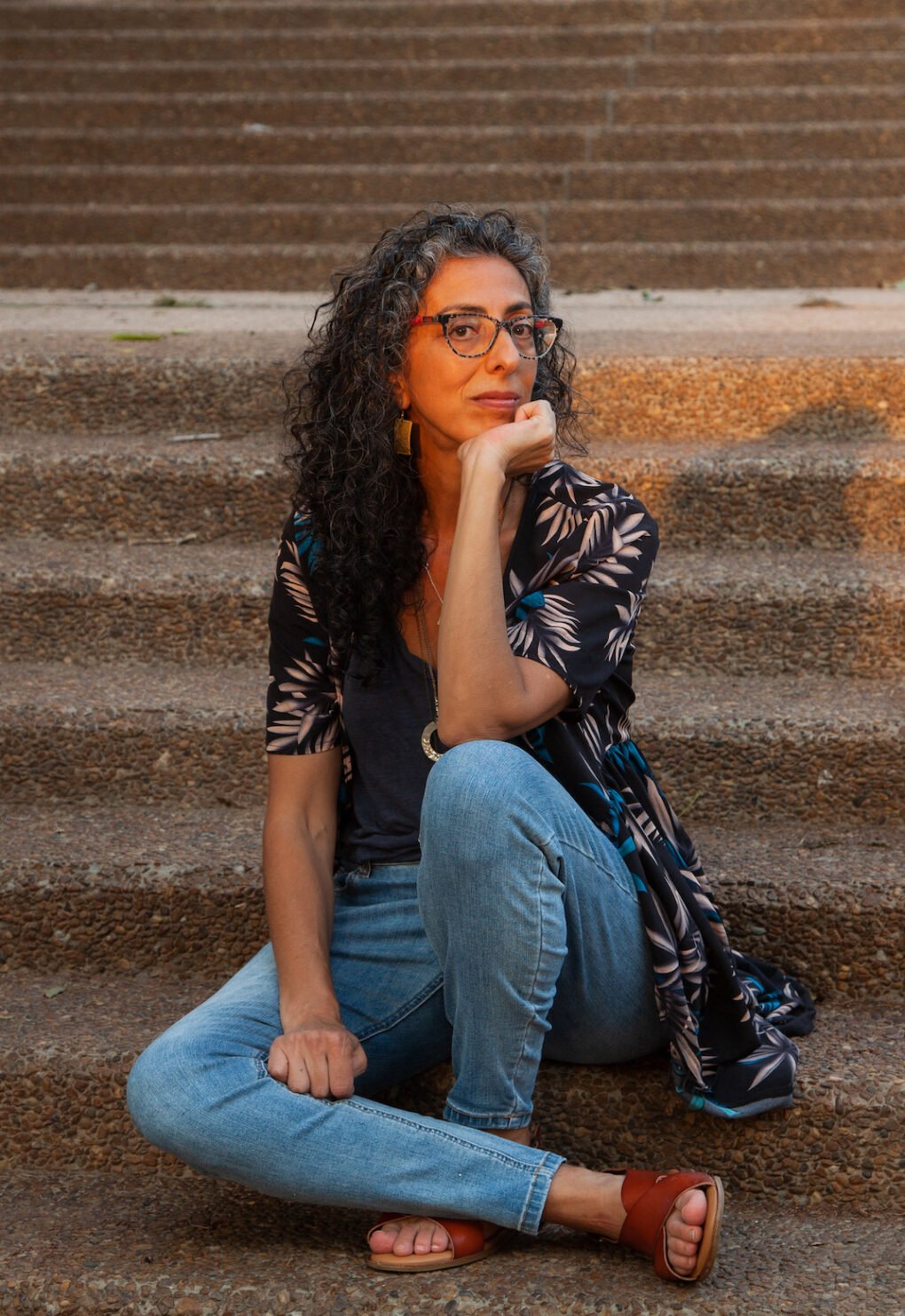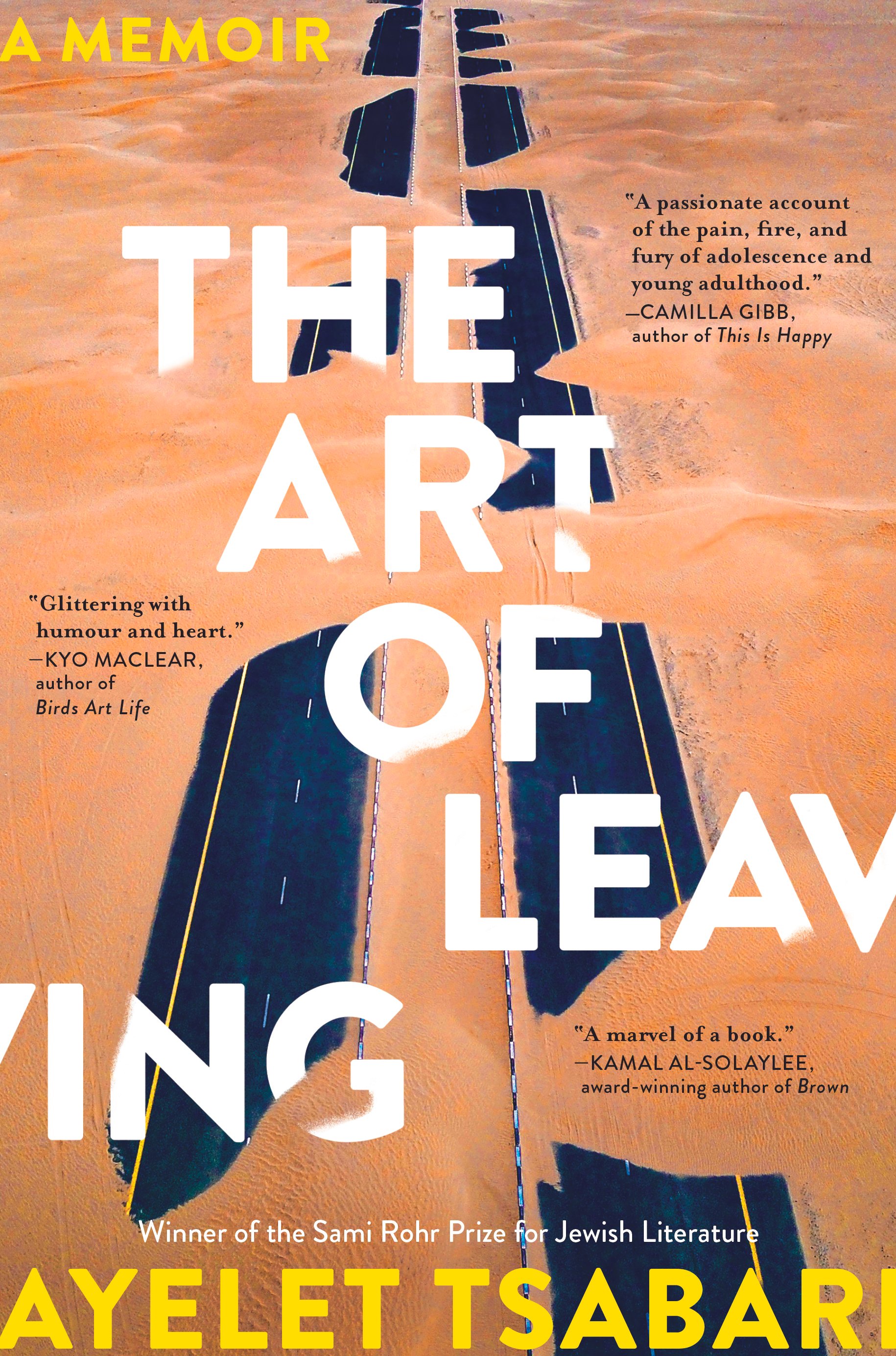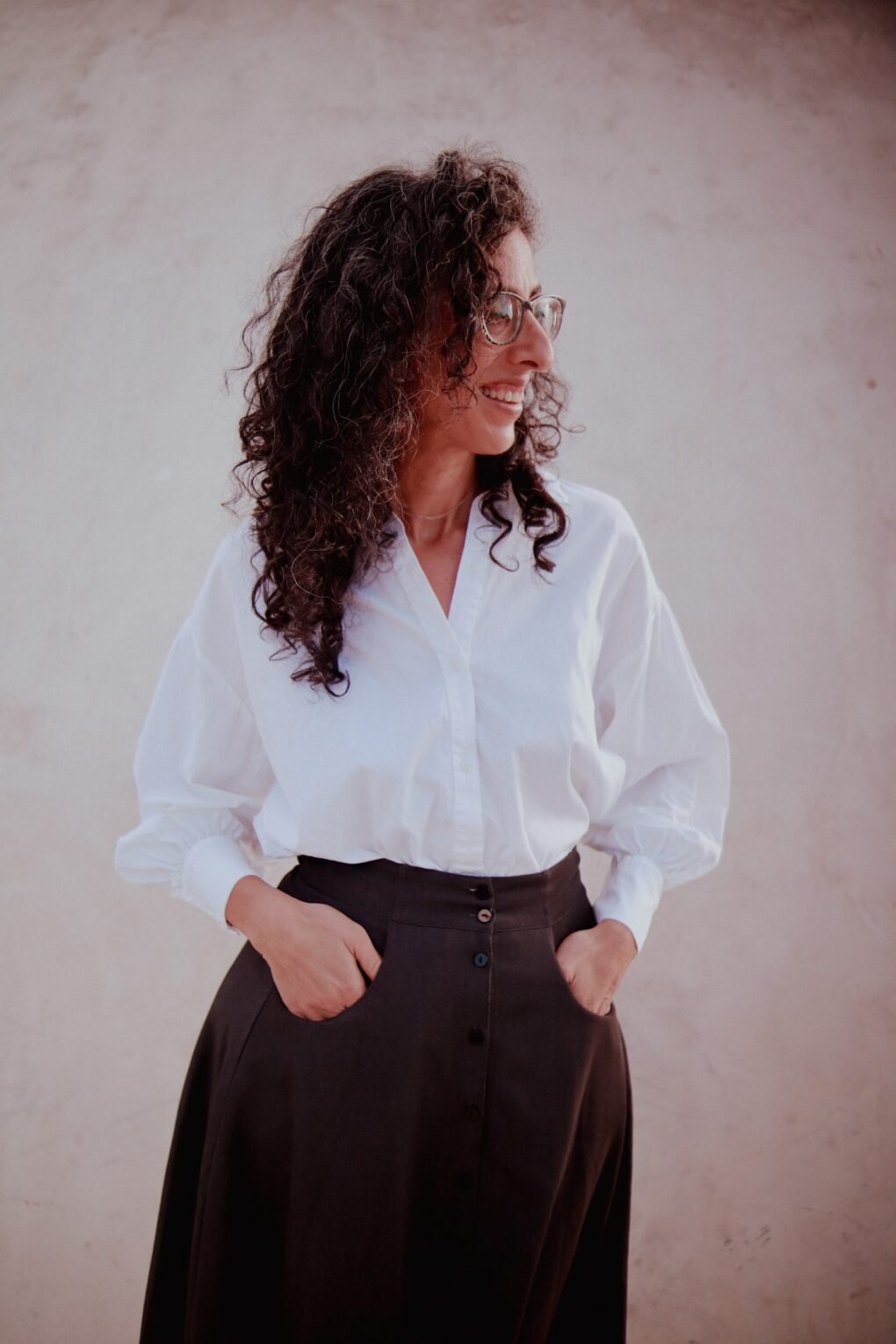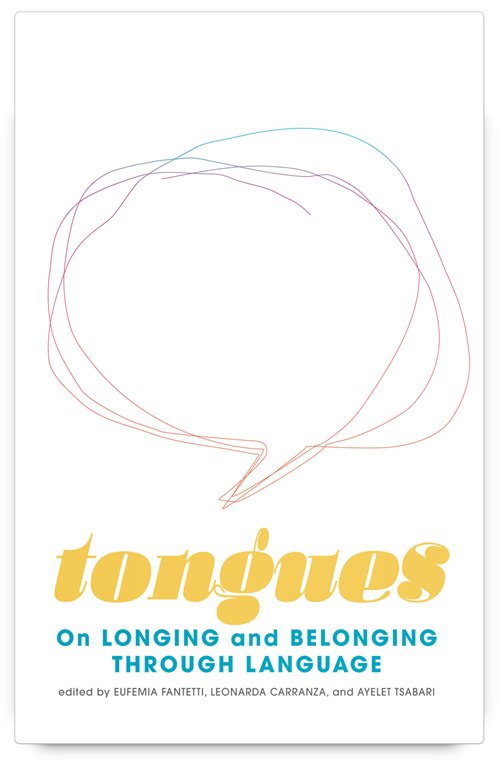From issue 2.10 December 2023 of Girls to the Front!
A Q&A with Ayelet Tsabari
Ayelet Tsabari (איילת צברי) is the author of the memoir in essays The Art of Leaving, winner of the Canadian Jewish Literary Awards, a finalist for the Hilary Weston Writers’ Trust Prize for Nonfiction, and The Vine Awards for Canadian Jewish Literature, and an Apple Books and Kirkus Review Best Book of 2019. She co-edited with Leonarda Carranza and Eufemia Fantetti the anthology Tongues, On Longing and Belonging through Language.
Her first book, The Best Place on Earth, won the Sami Rohr Prize for Jewish Literature and the Edward Lewis Wallant Award for Jewish Fiction. The book was a New York Times Book Review Editors’ Choice, Kirkus Review’s Best Debut Fiction of 2016, was nominated for The Frank O’Connor International Short Story Award, and has been published internationally to great acclaim.
Ayelet was born in Israel to a large family of Yemeni descent. She studied film and photography in Capilano University’s Media Program in Vancouver, where she directed two documentary films, one of which won an award at the Palm Spring International Short Film Festival.
I feel like I know you a bit after having read your memoir, The Art of Leaving, and I know that you wrote for the most popular teen magazine in Israel, Maariv Lanoar, when you were a teenager. I’m wondering what drove you to pursue that opportunity at the time? Did you always know you wanted to be a writer? And how has that experience shaped the writing that you are doing now?
I used to write before I even knew the alphabet. At five, I’d draw comics and narrate them to my family. So yes, I always knew I wanted to be a writer. Even before Maariv Lanoar, I used to send stories and poems to a children’s magazine and got such a thrill from seeing my name in print! I think what shaped my writing now is mostly the experience I had as a young reader, and how profoundly affected I was by books and wanting to evoke the same experience in others. I still write that way, hoping to elicit deep emotions in readers.
So far, you’ve published a book of short stories (The Best Place on Earth), a memoir (The Art of Leaving), and you’ve co-edited a collection of essays (Tongues: On Longing and Belonging Through Language). And I believe you told me you’re just finishing up a novel manuscript. Did you want to try writing in all different sorts of forms on purpose or did each project come about because of what you were inspired to write at the time? How was your approach to each project different (i.e., short stories vs. a novel; memoir vs. fiction)?
We all love to be recognized and lauded. Not to mention, many of these awards come with a generous cash prize, which helps writers tremendously with carving out writing time for future projects. But of course, awards are subjective and dependent on the specific jury. There are always many wonderful writers who don’t get recognized. I’ve been on both ends of this equation. I’m endlessly grateful for the awards I won and for what they’ve done for my career, but it’s an ongoing battle to not tie that recognition with our worth as writers and to just keep doing the work. Keep doing what we love.
My partner always laughs about that and said, next, a book of poetry! A Play! None of these choices was premediated. When it comes to writing I operate completely by intuition and emotion. I tend to believe that writing for me is about the love of story, so whether I write fiction or CNF, I try to tell a good story and do it in the most beautiful and artful way. Of course each genre comes with its own constraints so naturally there are some variations, but when it comes to prose, my process is similar.
Your books have won and been finalists for several awards, including the Canadian Jewish Literary Awards, the Hilary Weston Writers’ Trust Prize for Nonfiction, and The Frank O’Connor International Short Story Award. How do you feel about book awards and the credibility they give to an author or even just how they help a book to be noticed by the reading public?
I’m always interested in how writers pay rent and feed themselves. From reading your bio, it looks like you teach writing at three different universities. That sounds busy! How do you manage your time between all of the things you do—how do you set aside time for your own writing?
Aha! I was just mentioning the generous cash prizes and how much they can help writers. Yes, you are right. Sometimes I have to work too much and it’s not ideal. I guess like everyone, I am still figuring out the best way to balance everything. It keeps changing, which may be the hardest thing – not being able to predict or plan. Grants are also a huge help. With this book I just completed, it allowed me to take time off work and just write and it was such a wonderful gift. Other times, I wake up at 5am to get a couple of hours of writing time before I get onto other work.
On this topic, how do you feel that teaching writing—having to think about it and explain it to others as a craft, to understand and explain why a student’s writing is or is not working—has affected your own writing?
I believe it has helped me tremendously in my own writing. I tend to be quite methodical in my teaching and I like to investigate craft elements, to unlock and name them, to articulate why some things work and some things don’t. But also, as I always remind students, it’s important to remember that ultimately there’s an element of mystery to the writing process, and that intuition, gut feelings and distinct voice are a major part of it, perhaps the most important.
What are your thoughts on Goodreads? Do you think authors should ignore it, worry about it, engage with it? Do you ever use it to decide whether or not to read a book?
I actually rarely use it nowadays. There’s a danger in it for the writers: you can get too wrapped up in readers’ reviews and I don’t think it’s productive. For me, it is best to avoid it.
How do you deal with the deflating side of being an author—not being mentioned on lists of books “we’re anticipating,” not being on awards lists, negative reviews, etc.?
It’s hard. There’s no sugar coating it. The only thing I know to do, is to go back to the work. Remind yourself why you do it, and what you love about it. Also, I turn to writer friends. We remind each other what we are worth and if needed, talk shit to make each other feel better.
What would be your number one piece of advice for an emerging author (a) creatively and (b) about the business side of writing?
Creatively: trust yourself. Trust your voice. Be true to yourself. Don’t try to write like someone else. Don’t shy away from the hard stuff. Business: remember you are a writer first. If managing your social media stuff takes over your writing time, then you’re doing it wrong.
Finally, what will you work on after this new novel?
I’m thinking of returning to short fiction. I’ve been missing the short story form and I have a head full of stories these days.
